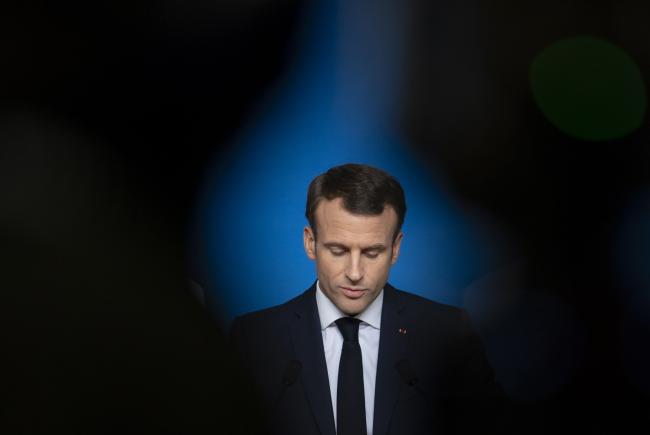(Bloomberg) -- Emmanuel Macron’s growing influence was on display in Brussels on Tuesday as the European Commission unveiled a new leadership team that’s in tune with the French president’s top priorities.
Commission President-elect Ursula von der Leyen named top officials to the European Union executive who are likely to promote French interests, from trade and fiscal matters to climate change and industrial affairs.
Macron is increasingly leaving his imprint on Europe after becoming France’s youngest leader since Napoleon and with German Chancellor Angela Merkel, the EU’s most powerful political actor for the past 14 years, preparing to leave office in 2021.
Macron has already played a decisive role in winning von der Leyen the top commission post, installing Christine Lagarde atop the European Central Bank and tapping Kristalina Georgieva to lead the International Monetary Fund.
The commission sets the legislative priorities for the bloc and is in charge of any major policy initiatives. France’s own commissioner, Sylvie Goulard, will take on the job of internal-market commissioner, and will be in charge of the bloc’s digital single market. France was one of the first EU countries to implement a tax on multinational tech companies, a topic it views as central to its autonomy.
Goulard “is entrusted with an essential and central economic portfolio in the strategy promoted by Ursula Von der Leyen and the resident of the republic in favor of true European sovereignty,” according to a statement released by the Elysee Palace.
She’ll also be responsibility for the EU’s increasing -- if still fledgling -- initiatives in the area of defense. France has long sought greater EU ambition in defense, at times irking fellow EU nations and the U.S. that are determined to prevent challenges to the North Atlantic Treaty Organization.
As Europe wrestles with the threat of populism at home and the hostility of world powers, the commissioner selections suggests it could be the French prescription, for a stronger state and tighter integration, that is gaining ground at the heart of EU institutions.
EU commercial policy will be in the hands of Phil Hogan of Ireland, which shares France’s traditional desire to protect domestic farmers from overseas competition. Ireland, like France, has also taken a hard line on the need to prevent Brexit from leading to controls on the land border between Britain and the EU.
With former Italian Prime Minister Paolo Gentiloni slated to be in charge of overseeing national budgets, von der Leyen is signaling openness to a French argument for flexibility in applying German-fashioned EU limits on deficits and debt.
Climate protection, whose importance Macron has stressed, will be the responsibility of Dutchman Frans Timmermans in a beefed-up role of executive vice-president in charge of the “European Green Deal.”
With democratic backsliding in eastern Europe a growing EU preoccupation and France a leading critic of the trend, von der Leyen handed Belgium’s Didier Reynders the rule-of-law portfolio. As Belgian foreign minister, Reynders has helped spearhead EU efforts to strengthen oversight of EU governments’ respect for democratic standards.
